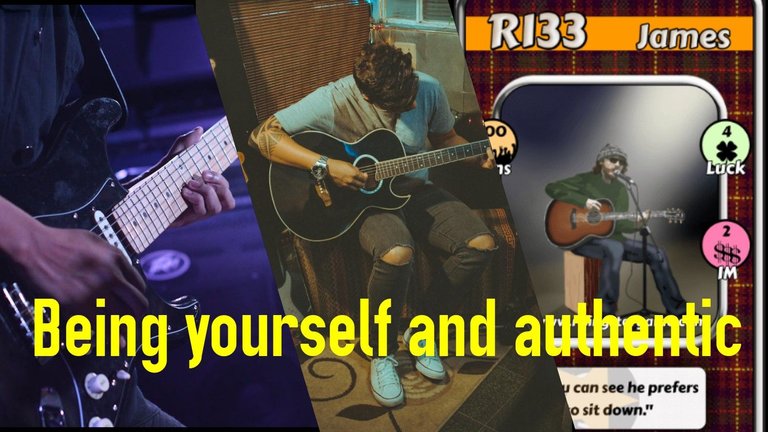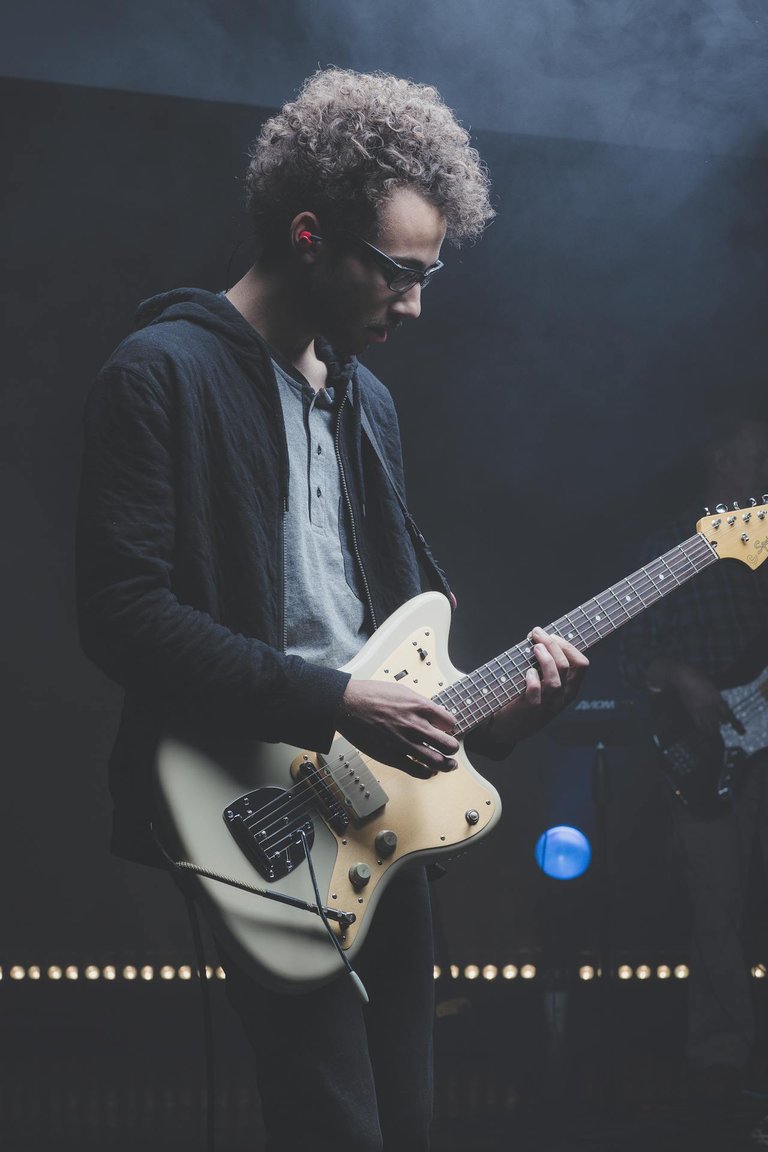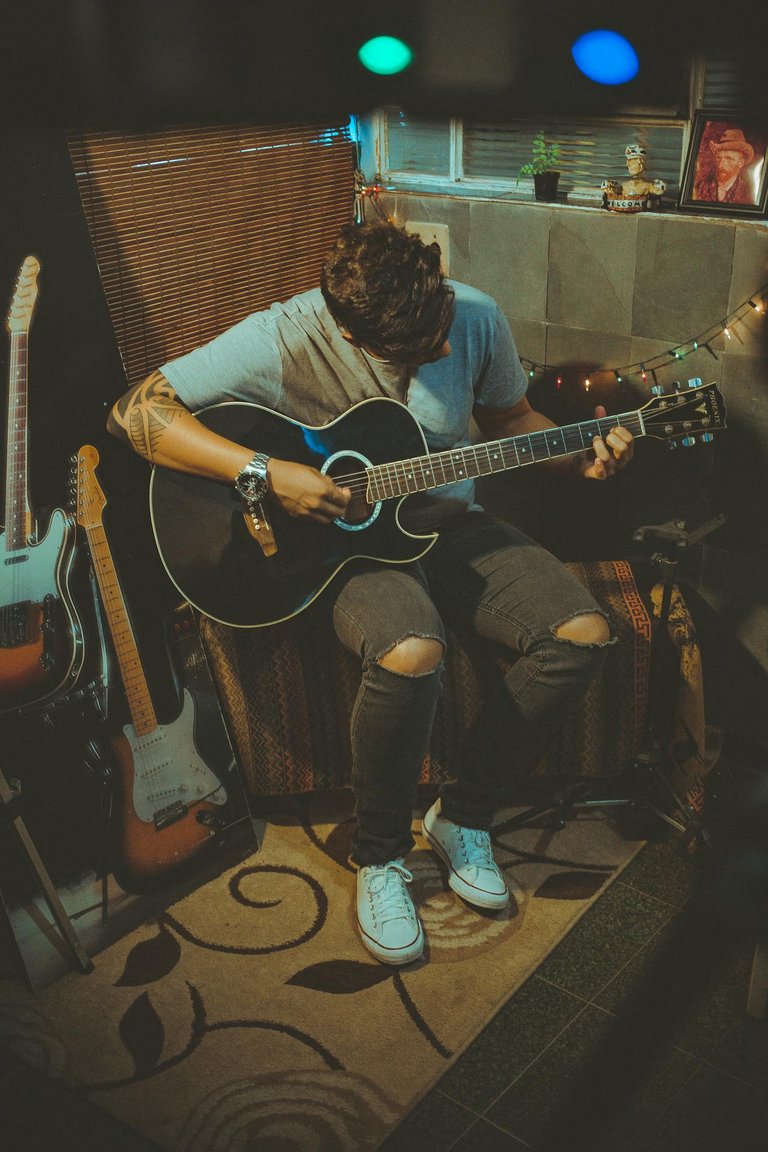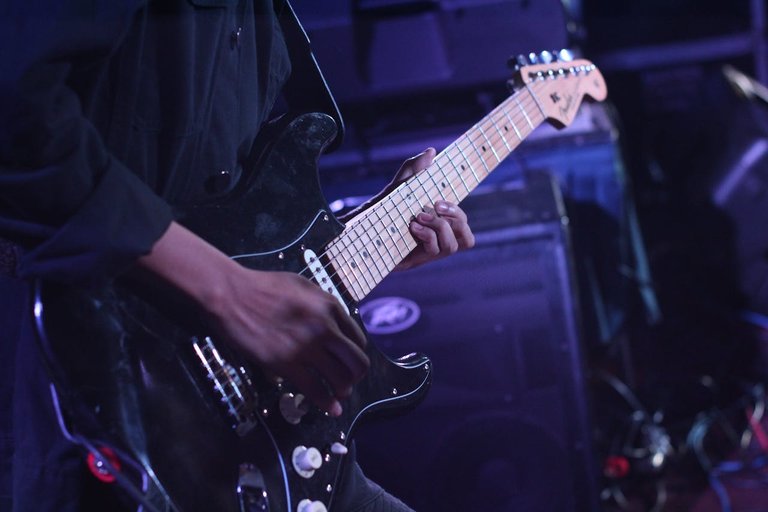Being yourself and authentic, James.

James woke up every morning to the same annoying beep of his alarm clock. It always sounded in the distance, as if coming from another room or another life, but it was there, right next to his bed. He lived in a small town, one of those where routine sticks to your skin, where you already know what you're going to smell when you turn the corner: freshly baked bread and burnt coffee. Sometimes it seemed like time stood still there, as if everyone was waiting for something, but not knowing what it was. Since he was a teenager, the guitar had been his hiding place. More than an instrument, it was like an object with strange powers, like a door to escape from his surroundings. He played in several bands; some had names, others barely had a logo.
There was always someone saying that this time they would really take off, that this time the manager had "real" connections, but all those promises faded away, like a tightrope that never quite tightens. Music, little by little, began to feel like a chore. Like a disguise. It wasn't that he didn't want to play, it was that he no longer knew why he was doing it.

There were nights when he played to packed bars, but what you heard wasn't so much him as the echo of something that had worked before, elsewhere. Songs that no one cared about, but that made people nod their heads. The audience applauded sometimes for the song, sometimes because someone played a long solo, and often just because the lights went out at the end. James went home with that ugly discomfort that has no name. Not sadness, not anger. Just a feeling of being out of place. As if he were telling a story that wasn't his own. One ordinary afternoon, after a performance where everything went "well," but nothing felt right, he sat on a rusty park bench. There was no plan, no deep reflection, he was just tired.
He watched the crowd go by as if everyone knew what they were doing except him. Martín, the owner of the bar where he played on Thursdays, approached him. They had known each other for years; they weren't friends, but there was a kind of respect without many words. I always see you up there, James... playing as if you're searching for something, but I don't know if you know what. Isn't it time to stop imitating and start saying something of your own? James said nothing. He just nodded, though he wasn't sure he fully understood what Martin meant. But he couldn't sleep that night.

Or maybe it was, but with strange dreams. The next day, he looked for his old notebook. It was dusty, the pages were bent, and even had coffee stains. It was almost ridiculous, but there were loose phrases, chords, scribbles. Things he'd written when he hadn't yet thought about whether something was commercial or not. And there, amidst all that, something sparked. What made me feel good when I played for the first time? Where did I go astray? It wasn't one of those changes where you wake up and you already know everything. No. On the contrary. For weeks, he felt clumsy, as if he had to learn all over again. He closed his social media accounts, stopped going to certain rehearsals, locked himself in his house, playing aimlessly. Sometimes he'd write something and erase it within a minute. Sometimes he cried without really understanding why. At one point, he went out to the town square with his guitar and sat down to play. Just for the sake of it. Without a microphone, without a set list. He played old stuff, his own stuff, even some silly stuff that came to him at the moment.
One afternoon, Clara, a neighbor you always see but never say hello to, approached him. "Your songs sound different today..." she said, as if unsure whether she was complimenting him or questioning him. "I think I'm neglecting what I'm supposed to do and... I don't know, searching for something more my own." Clara didn't respond; she just smiled in that awkward way that honest silences have. But that day, James felt a little less lost. Over time, people began to notice. Not many, not all at once. But some.

Someone shared a video of him in a cafe. Another asked him to teach them how to compose. And so, as if by accident, his name started getting heard more. A local producer told him after a small show, "What you do... it's obvious it's not just for show. It's real. That's worth more than you think." And for the first time in a long time, James didn't shy away from praise. He just said, "I'm trying not to hide." It wasn't a big hit, there was no million-dollar contract or world tour. But they started inviting him to venues where it wasn't so much how many people applauded as what you said with your playing. They even invited him to judge a competition for new musicians. He found it hard to believe, but he accepted. Maybe to help someone else avoid the same pitfalls. At one of those events, a guy approached him, his eyes slightly glossy, and blurted out, "Sometimes I feel like I'll never do anything that matters."
That if I don't copy what works, no one will listen to me. James looked at him with some pity and complicity. He adjusted his shirt, not knowing what to say, and said, You don't have to sound different. You just have to sound like you. The rest... is patience. It wasn't a great line, but the boy nodded. And James knew that nothing more was needed. You know, James didn't finish here. He just kept going. Like things that don't seek to close, but to stay alive, continue. With his guitar on his shoulder, he became one of those musicians who aren't noticeable at first glance, but when they play, something moves. Something real.

Credits: The images used are free to use and royalty free. They were taken from pixabay.